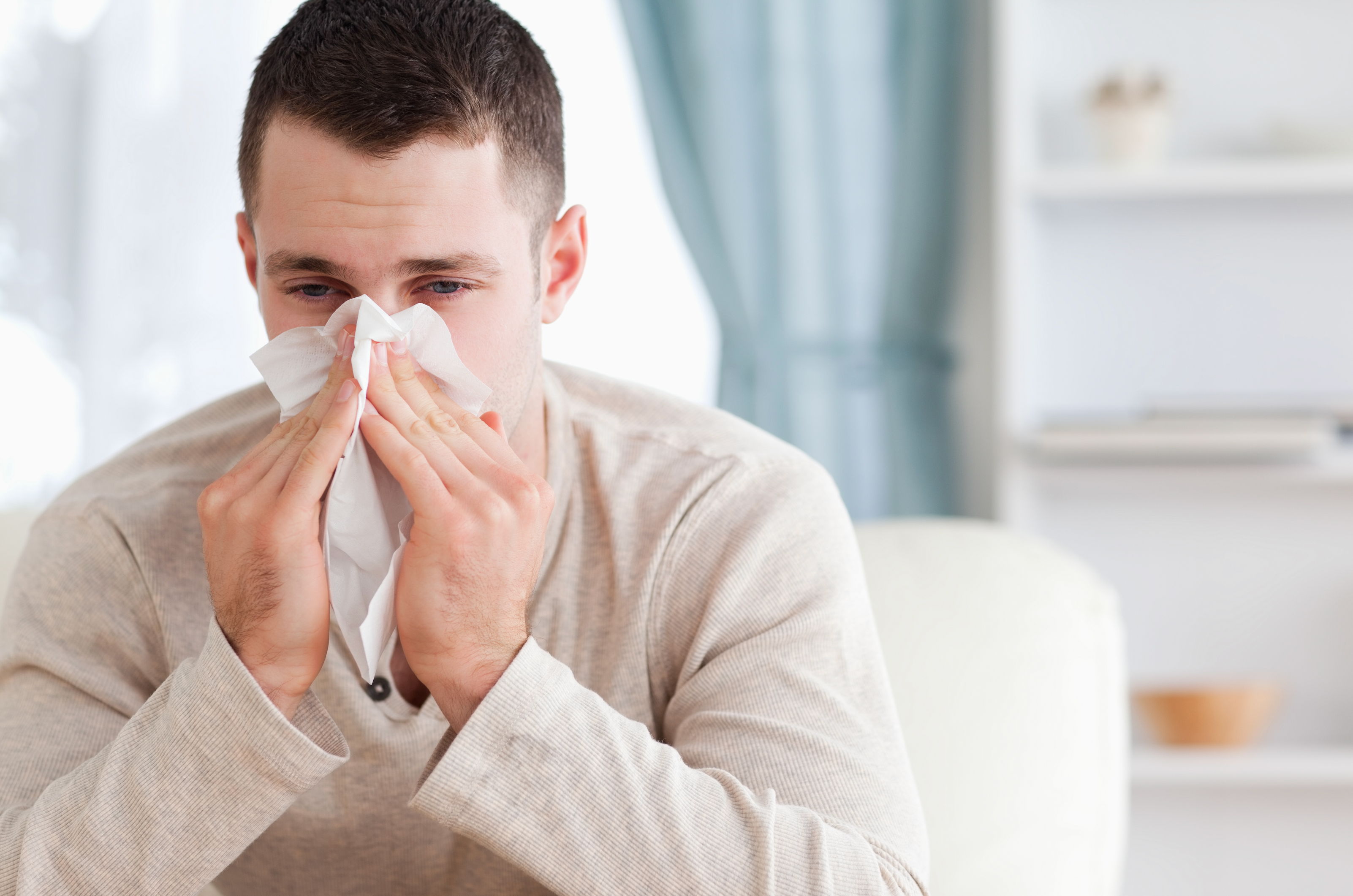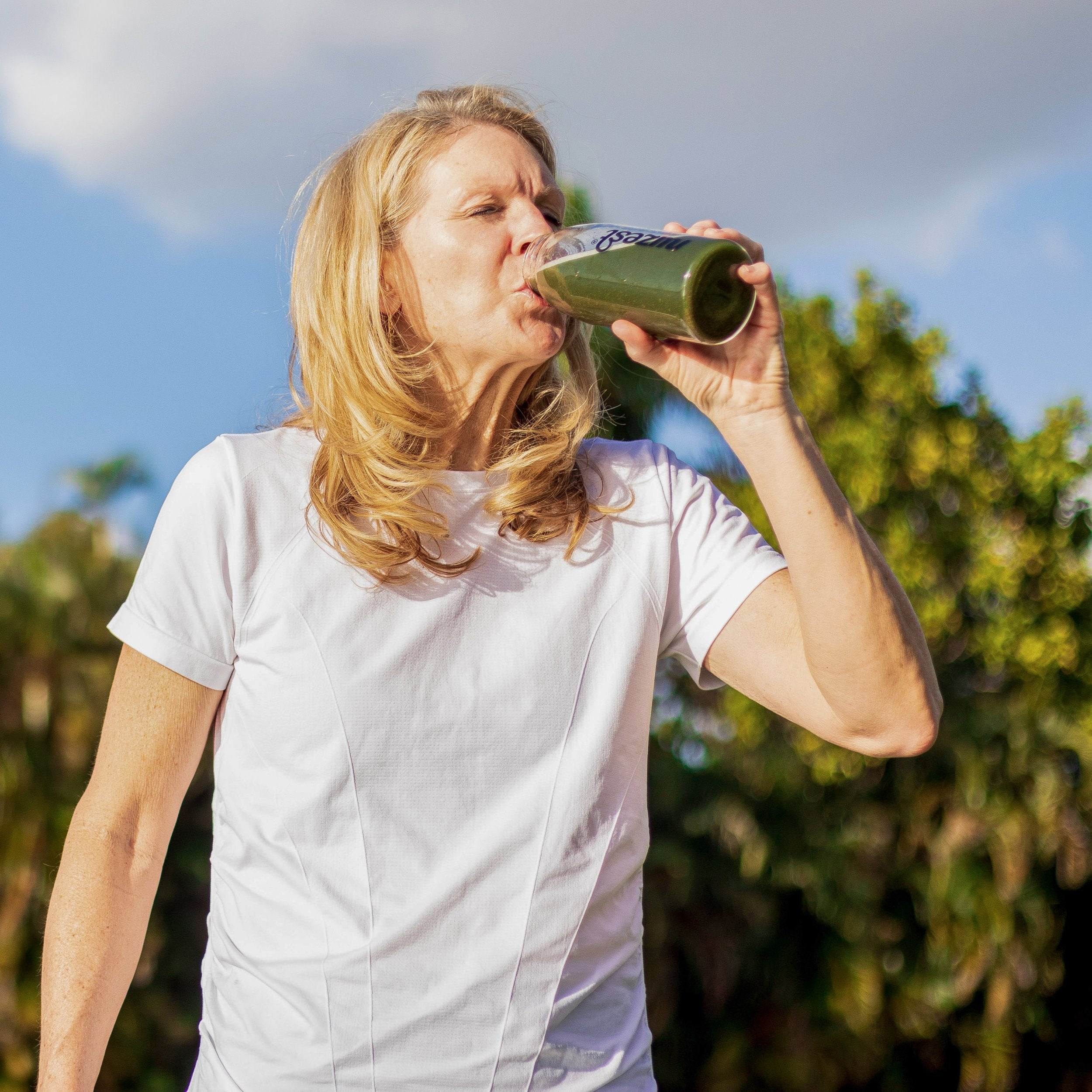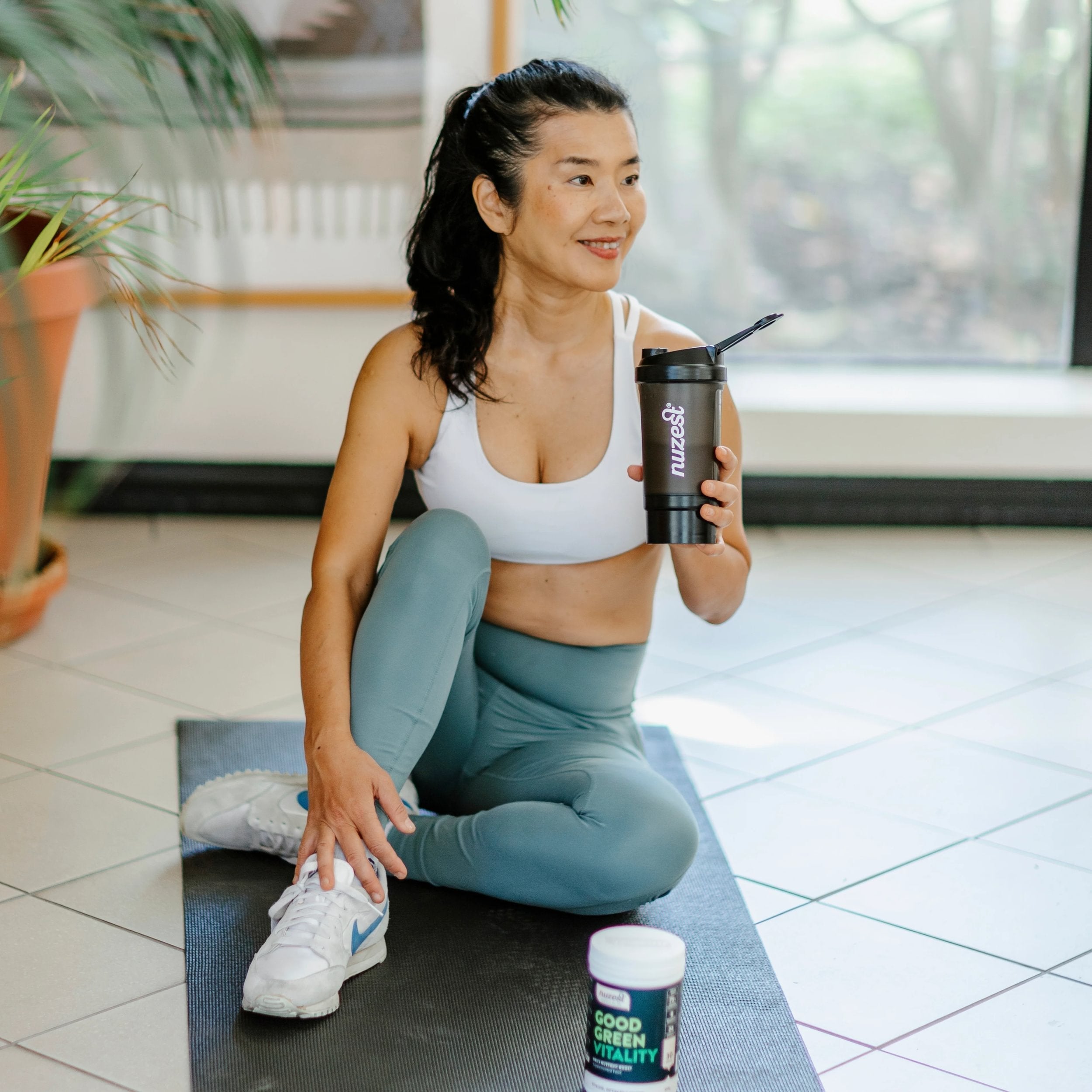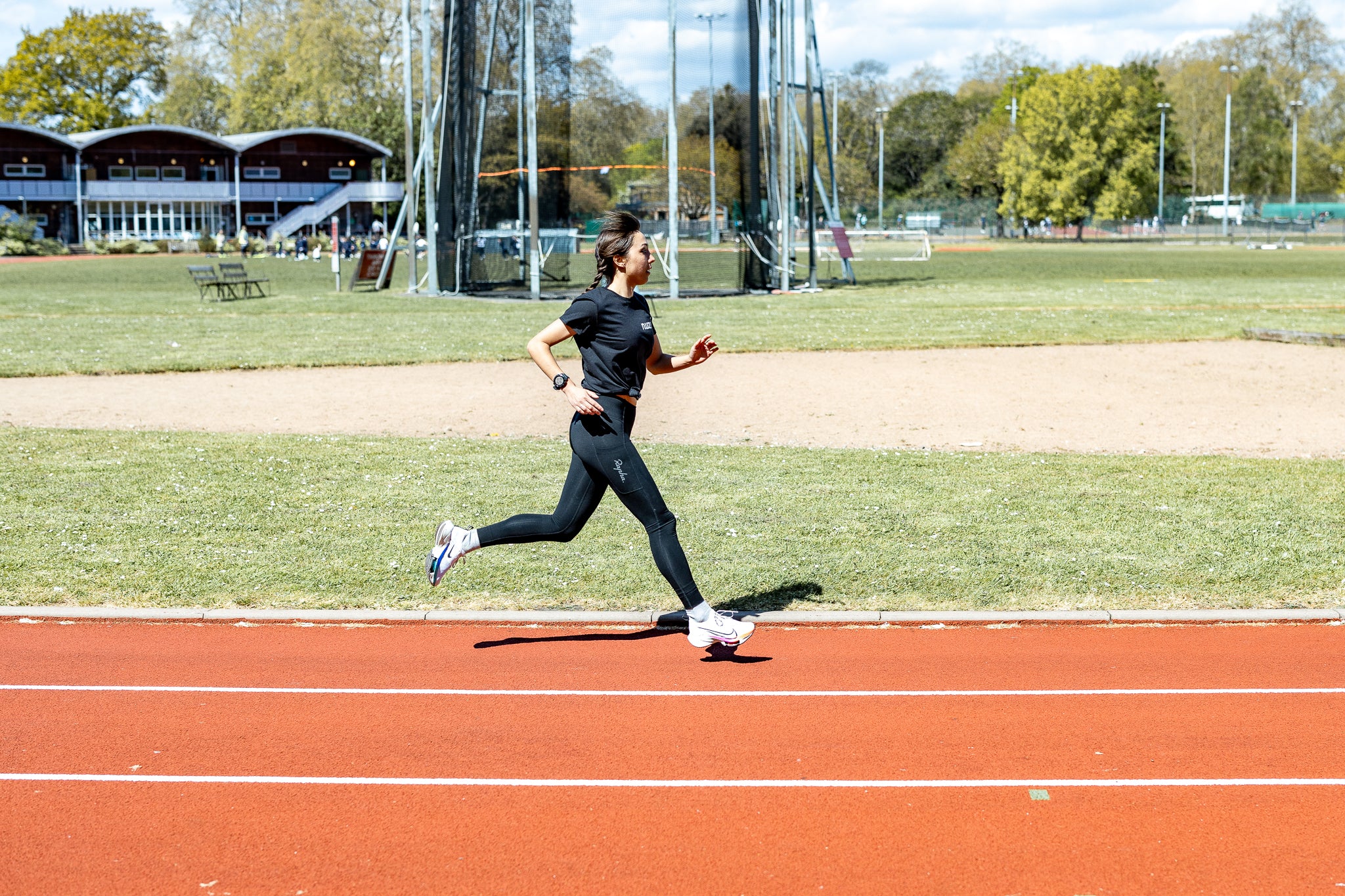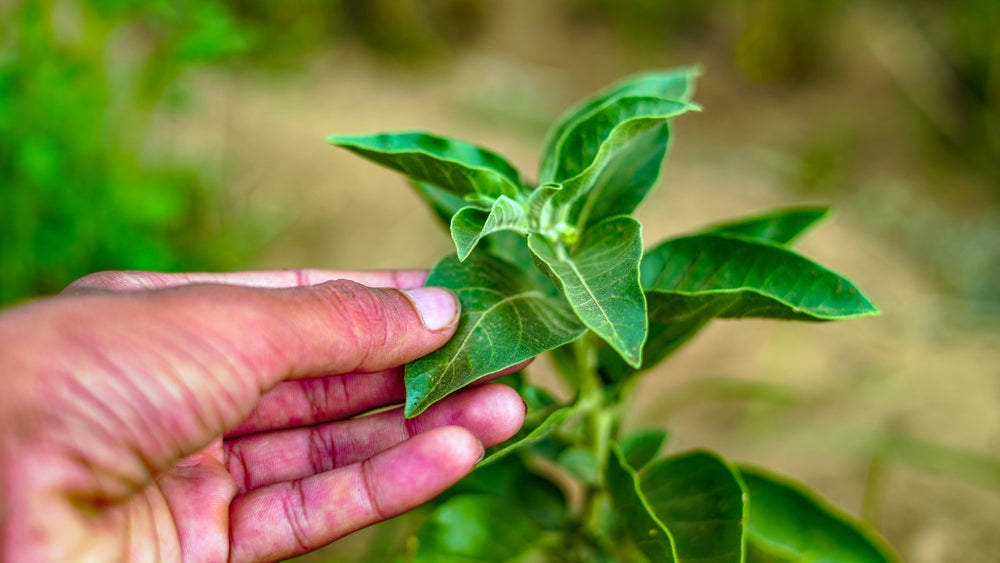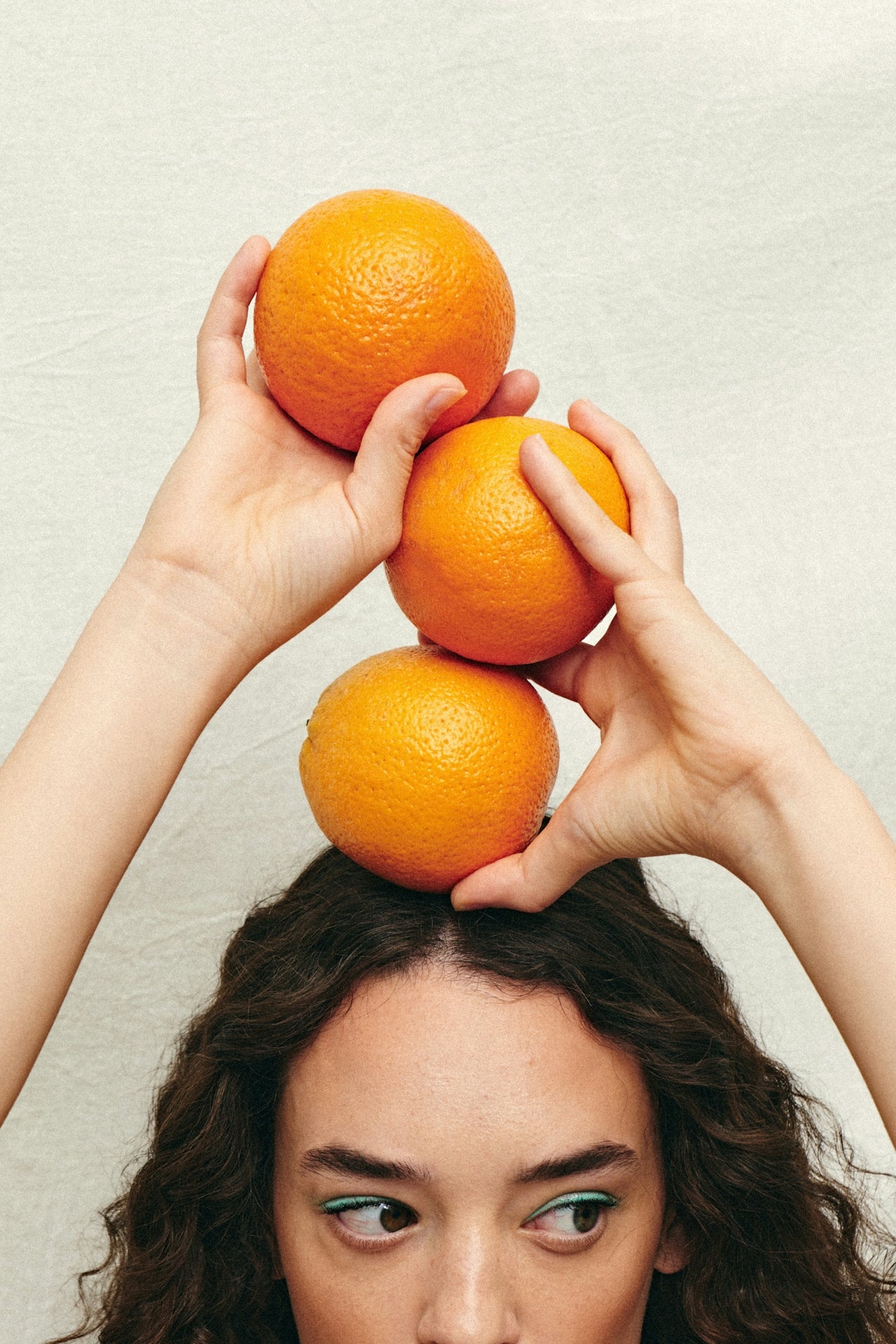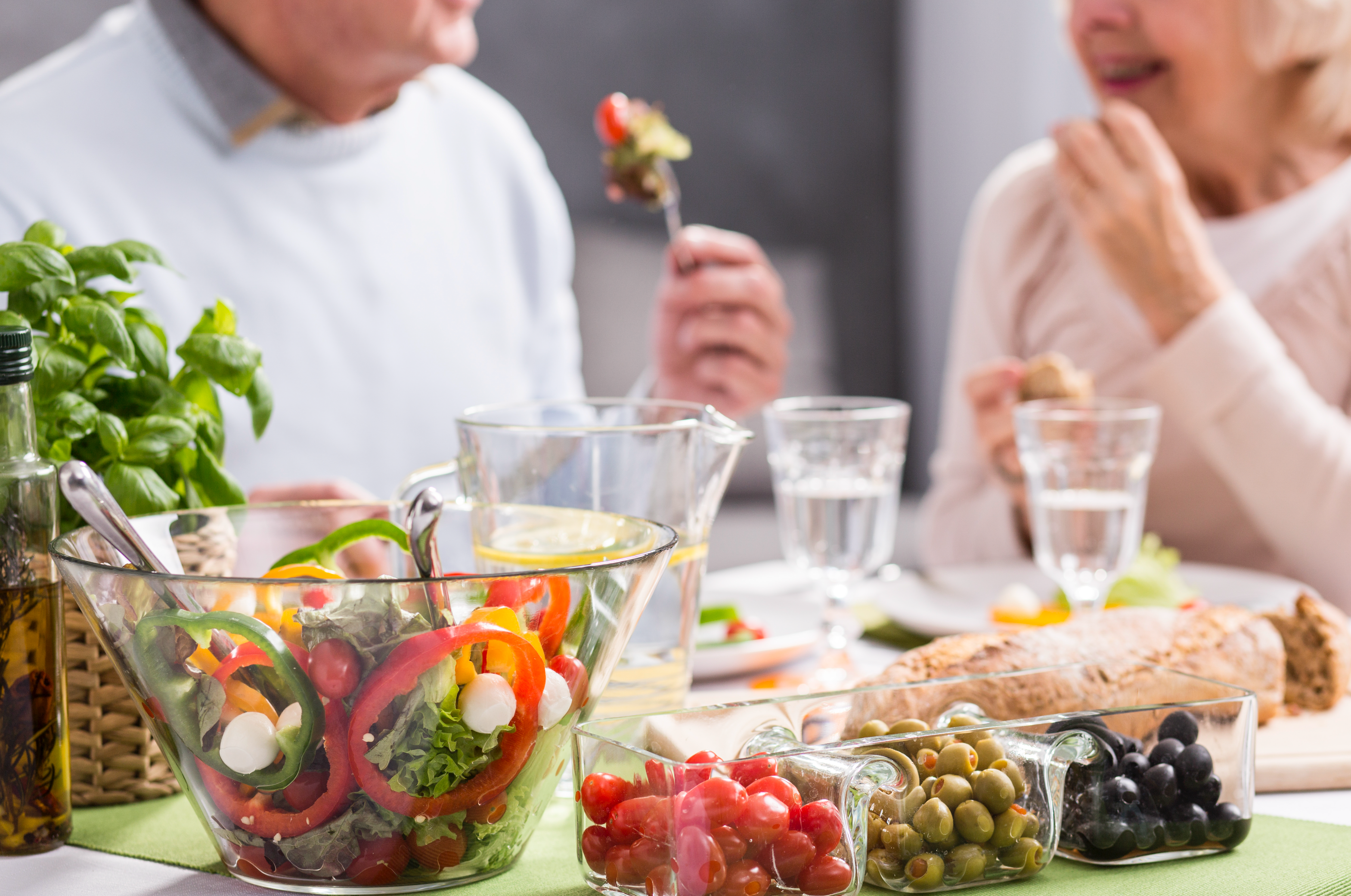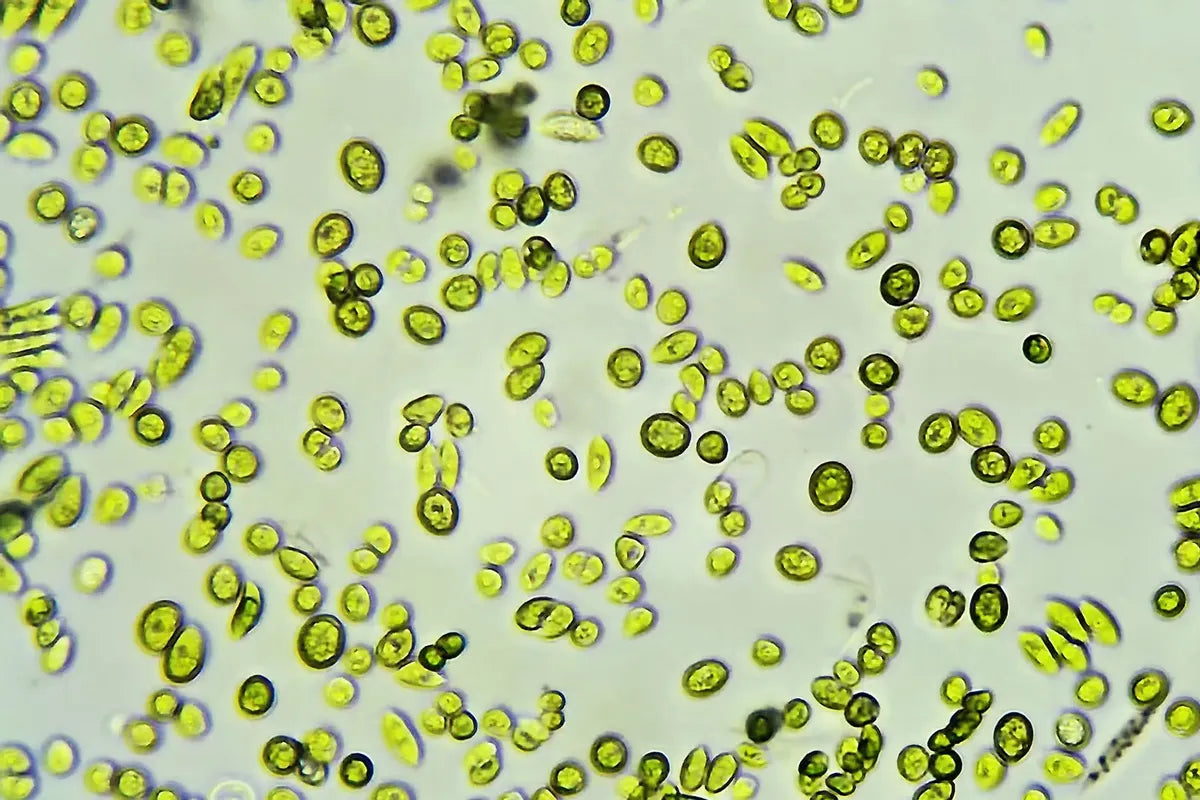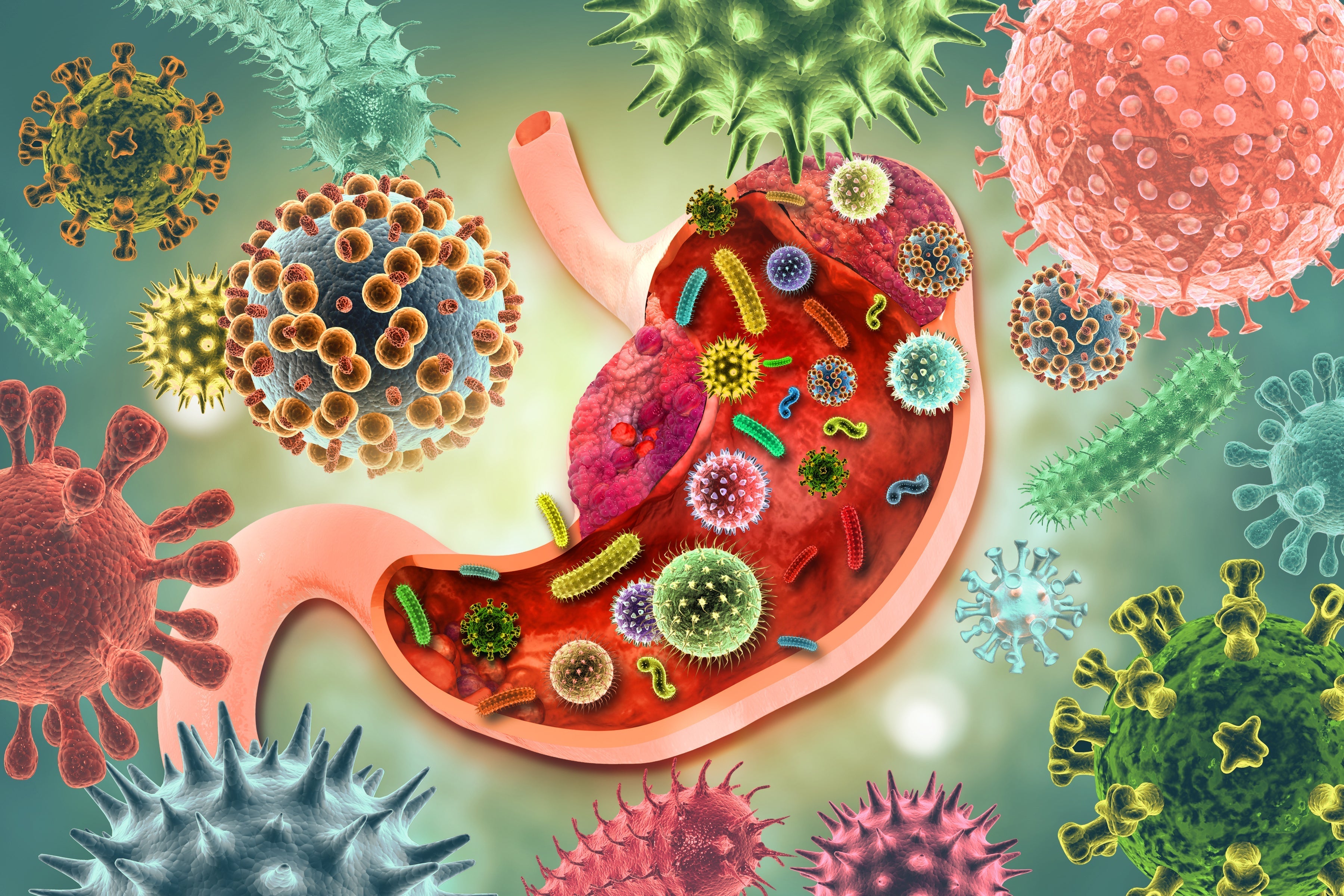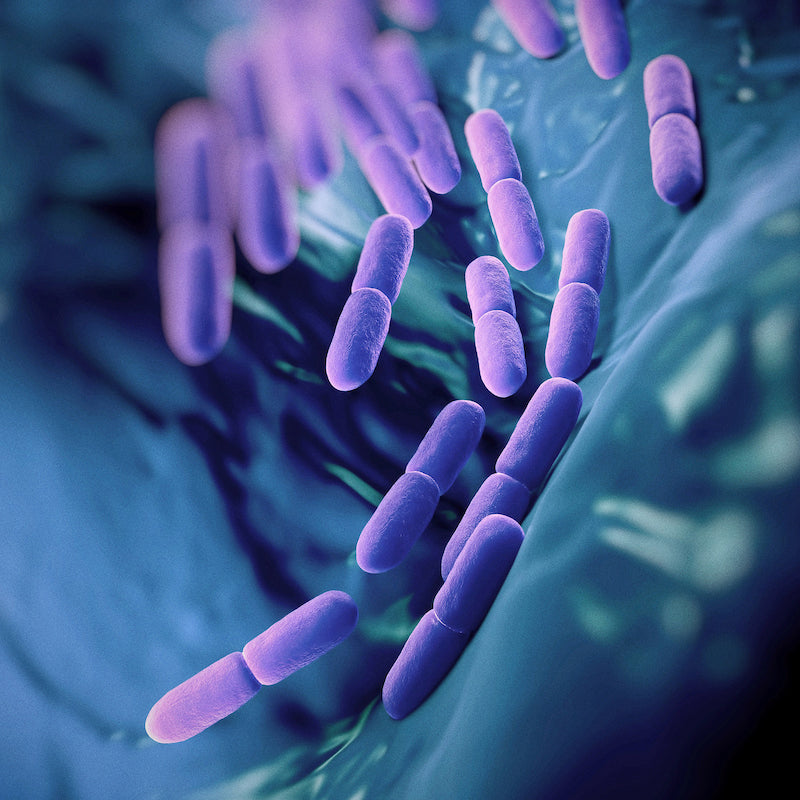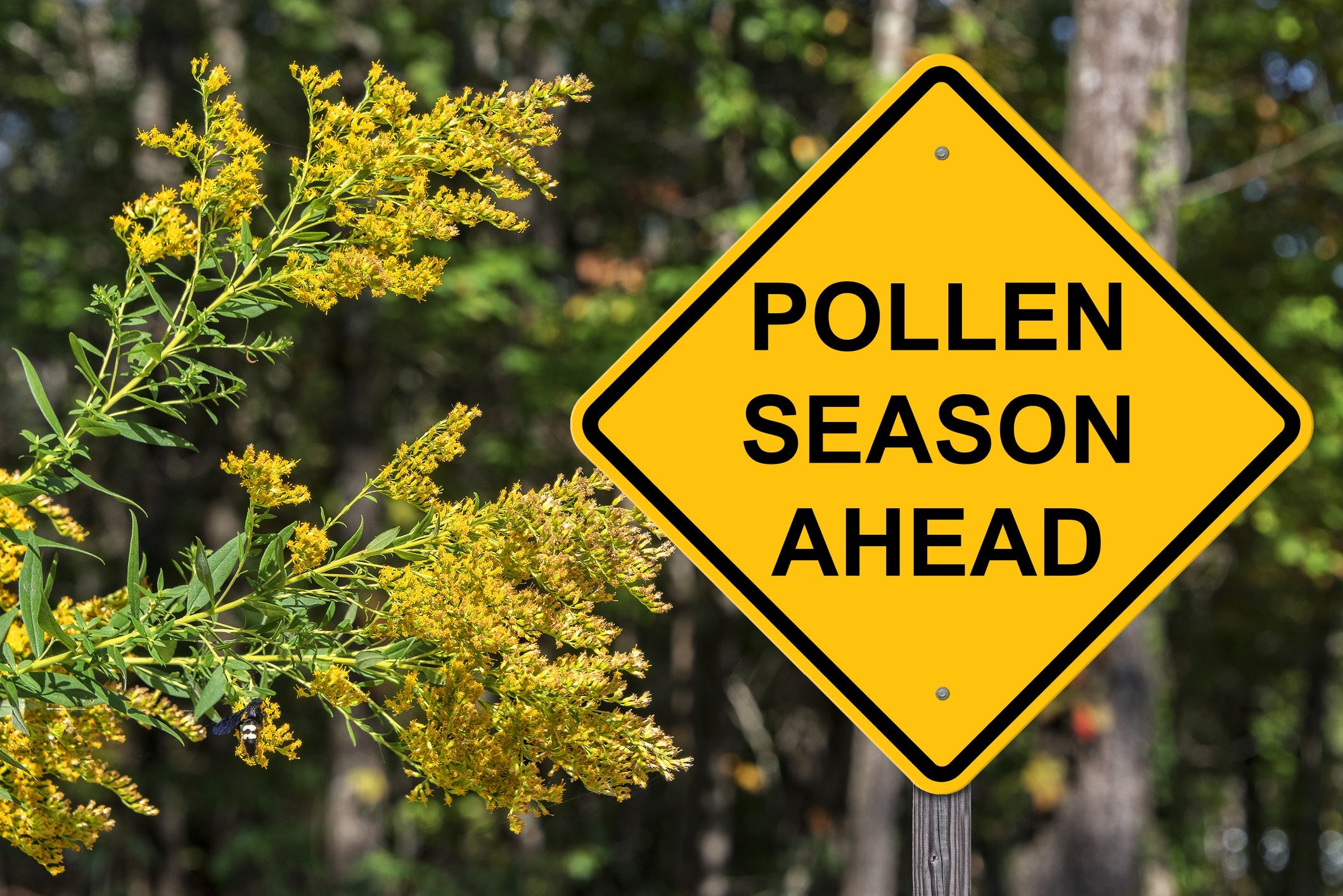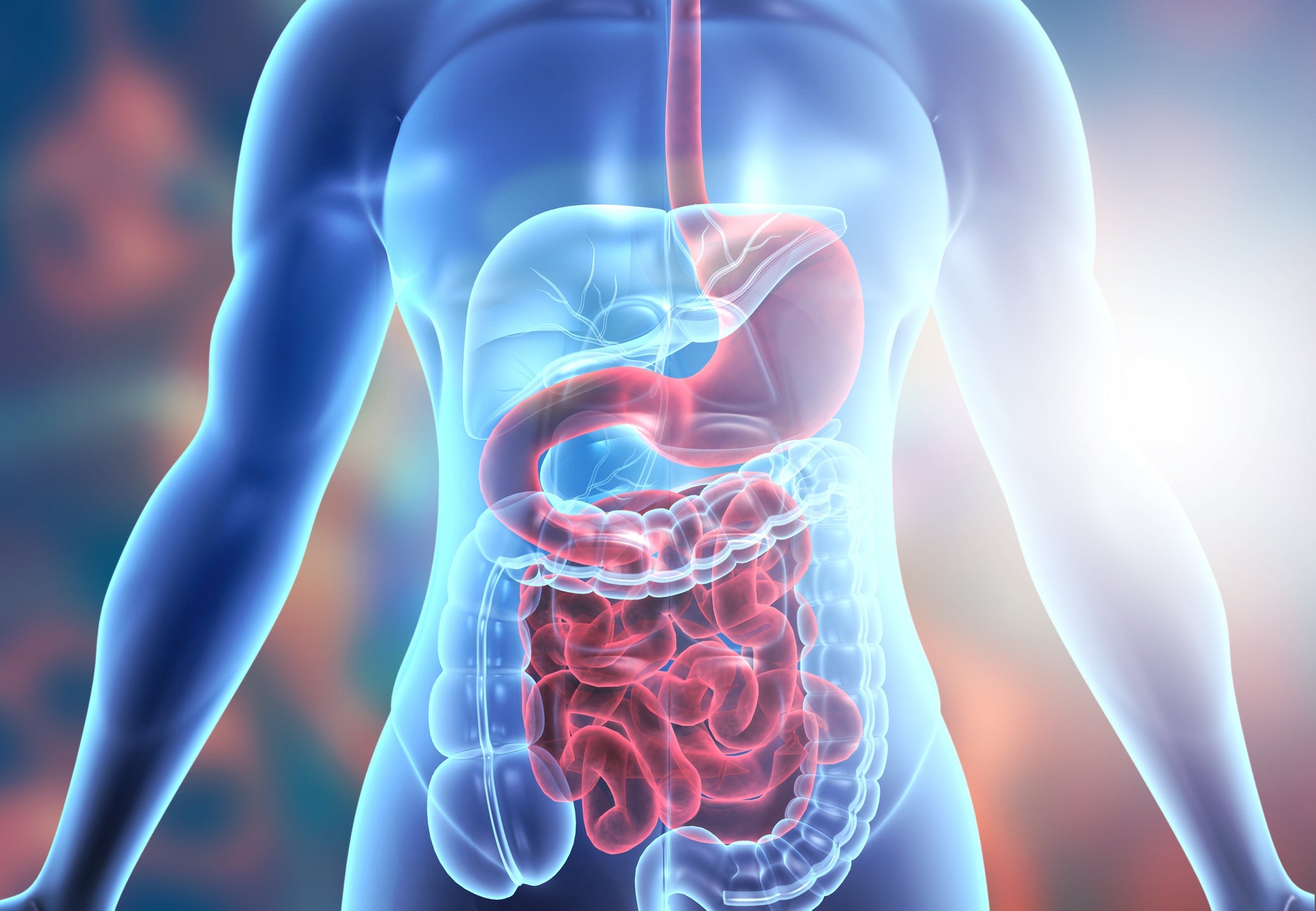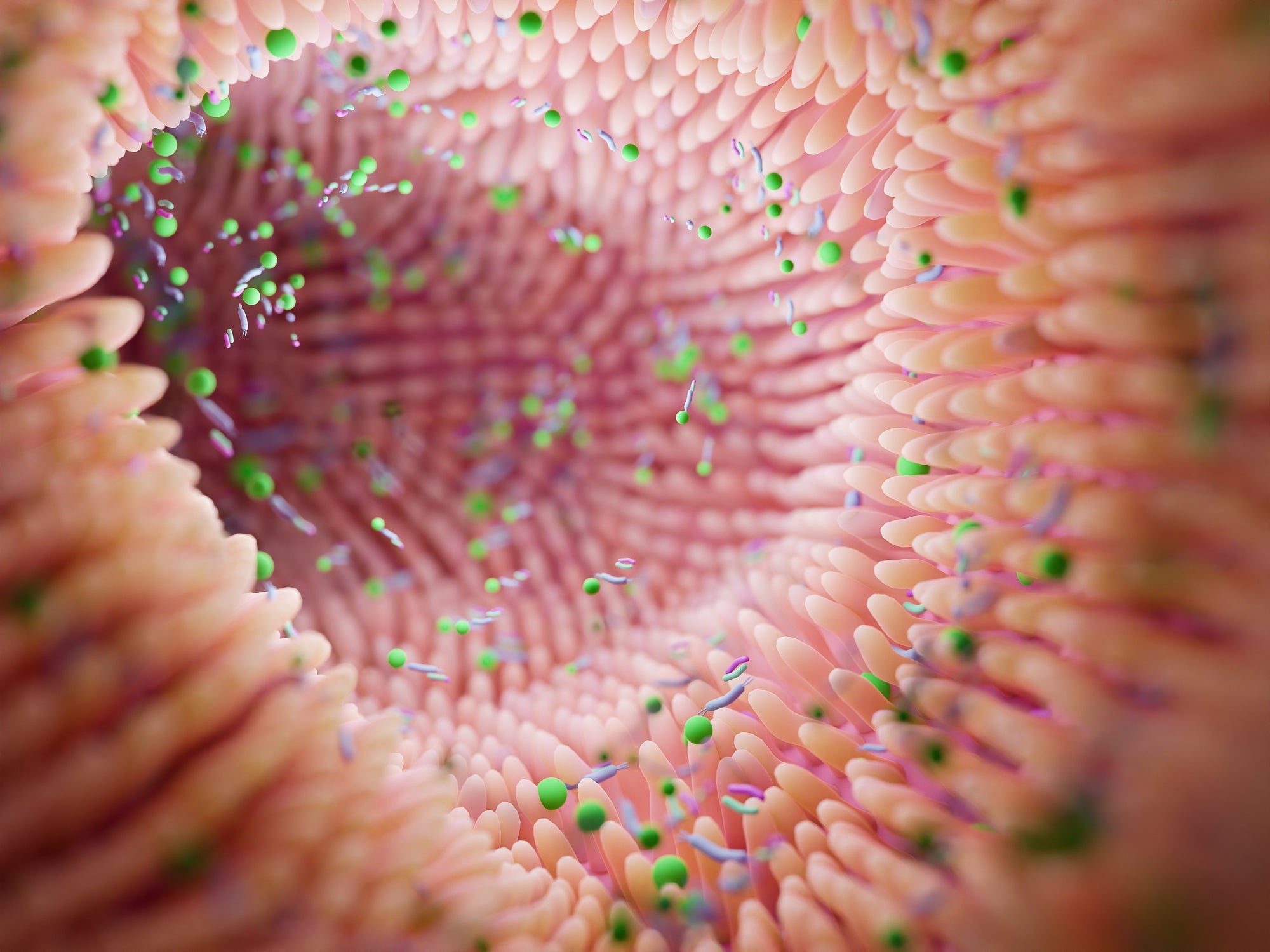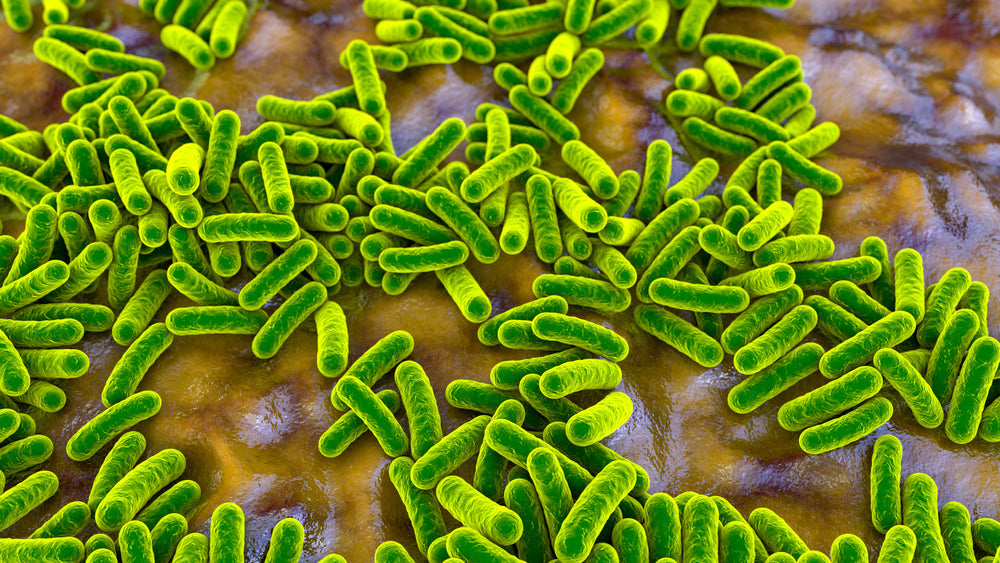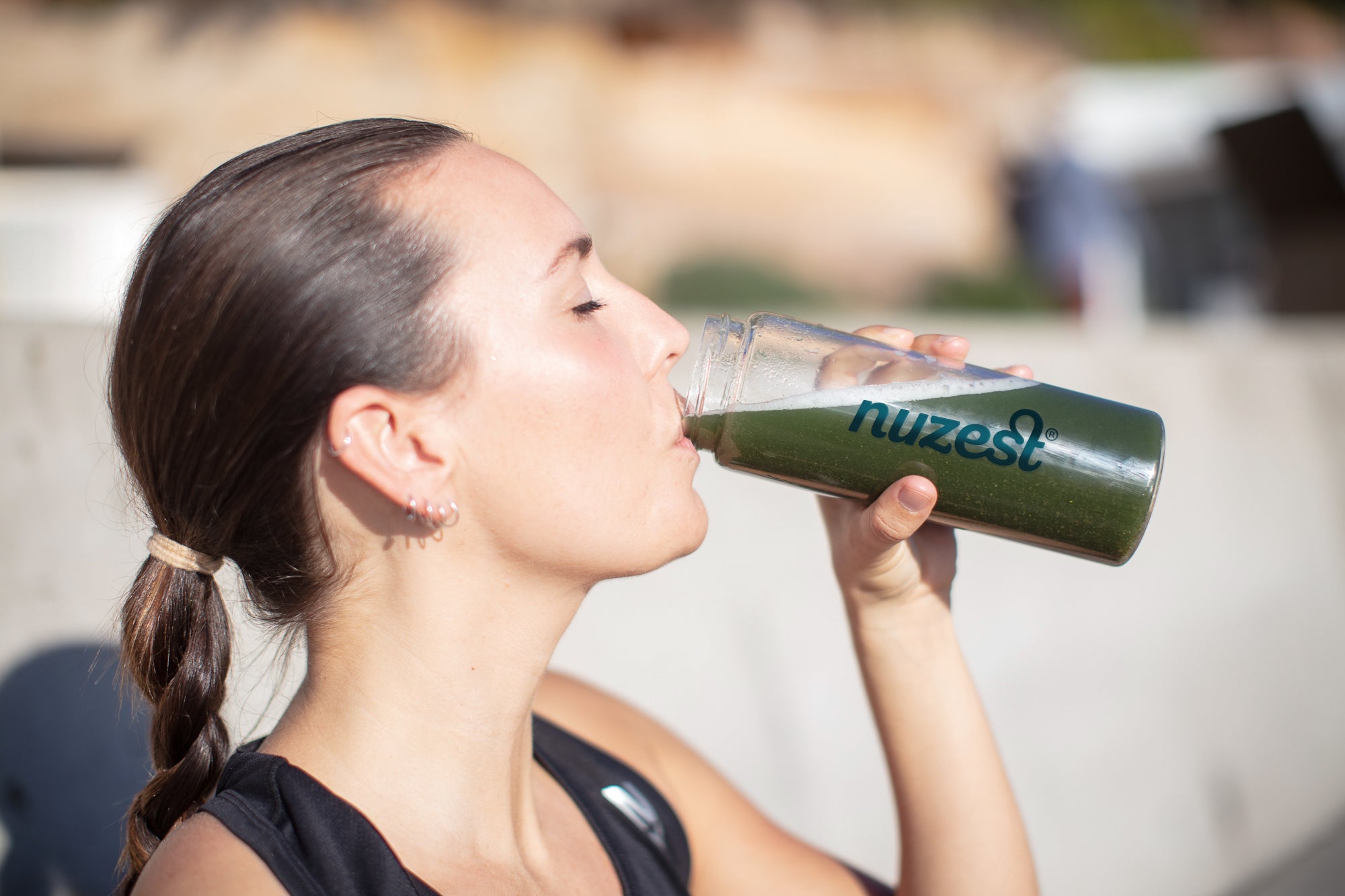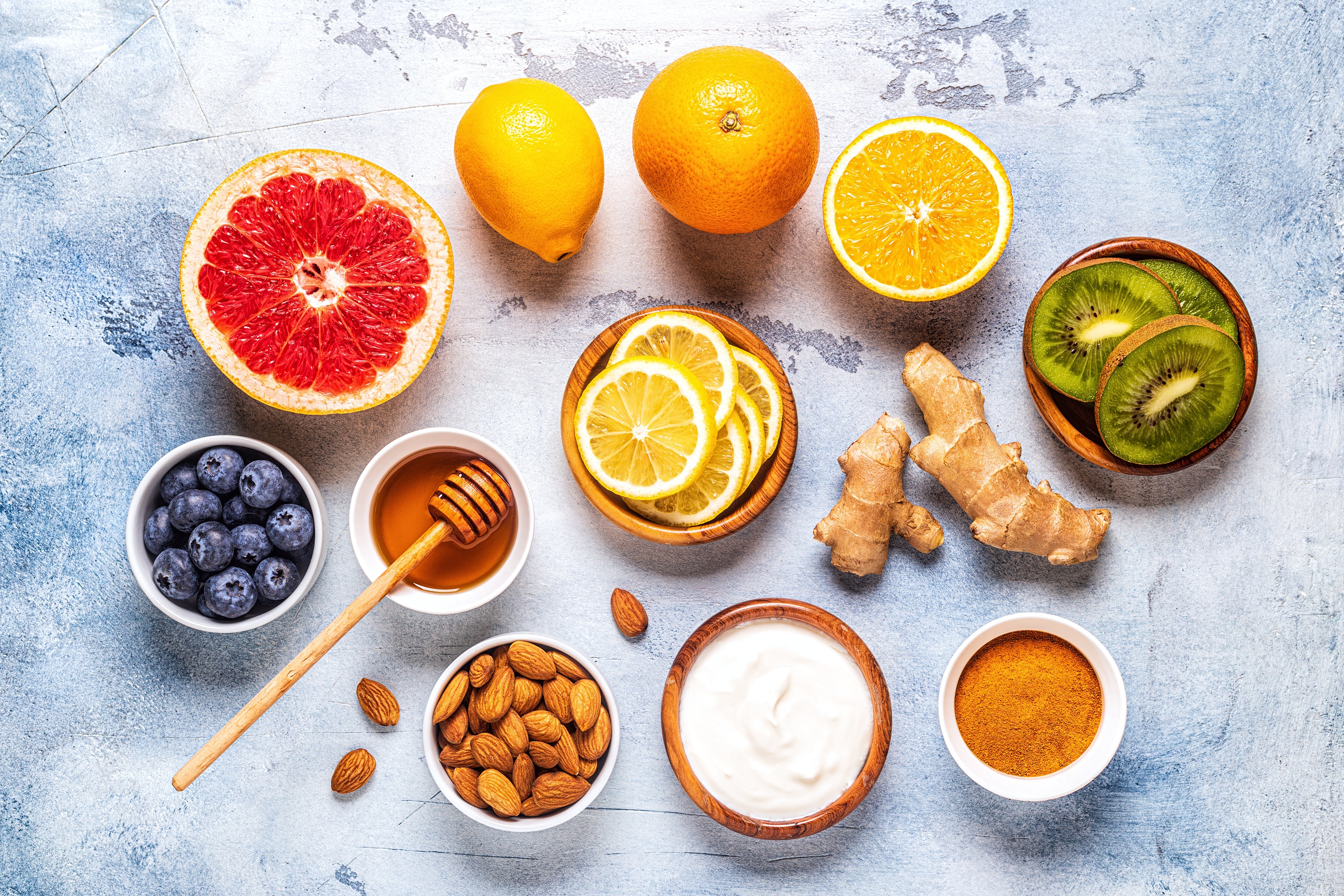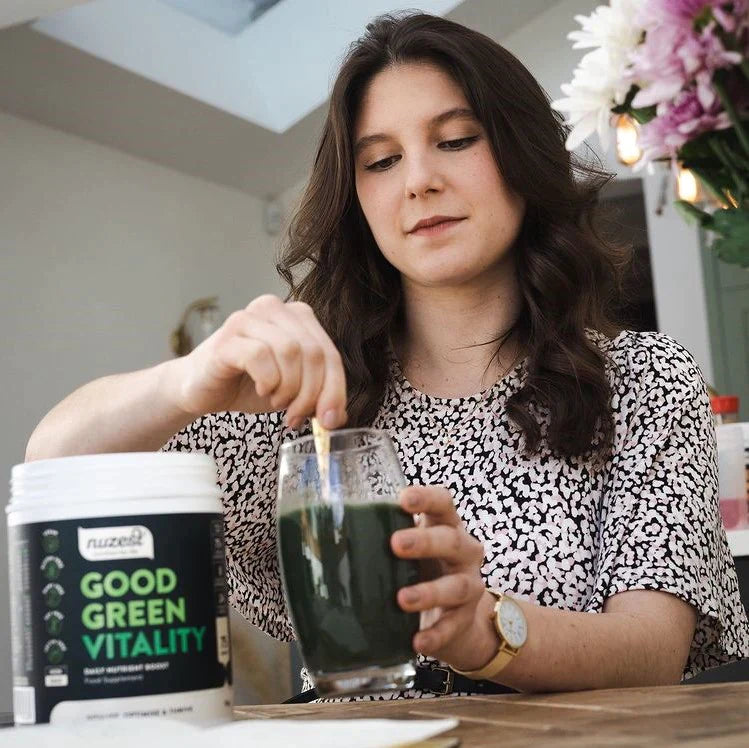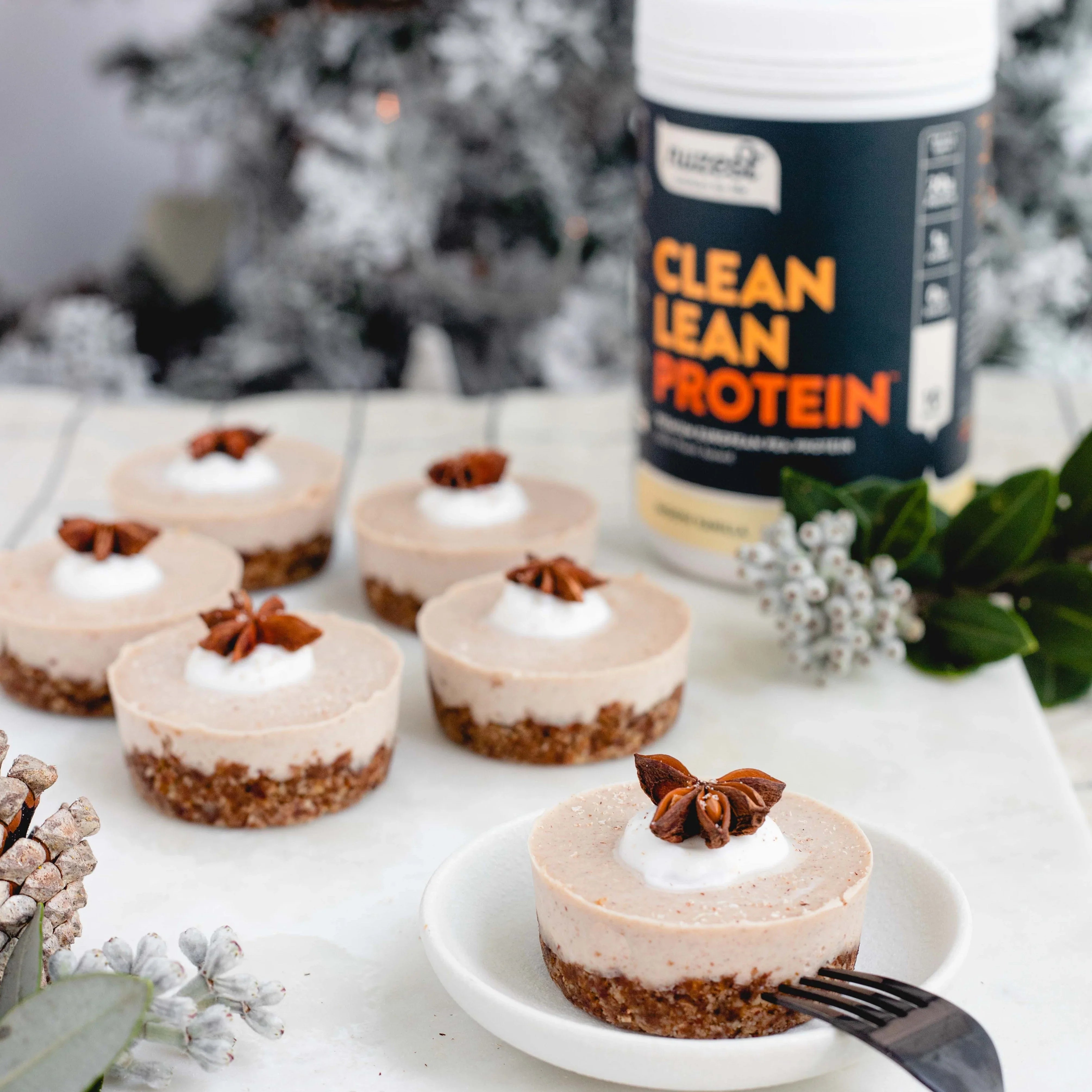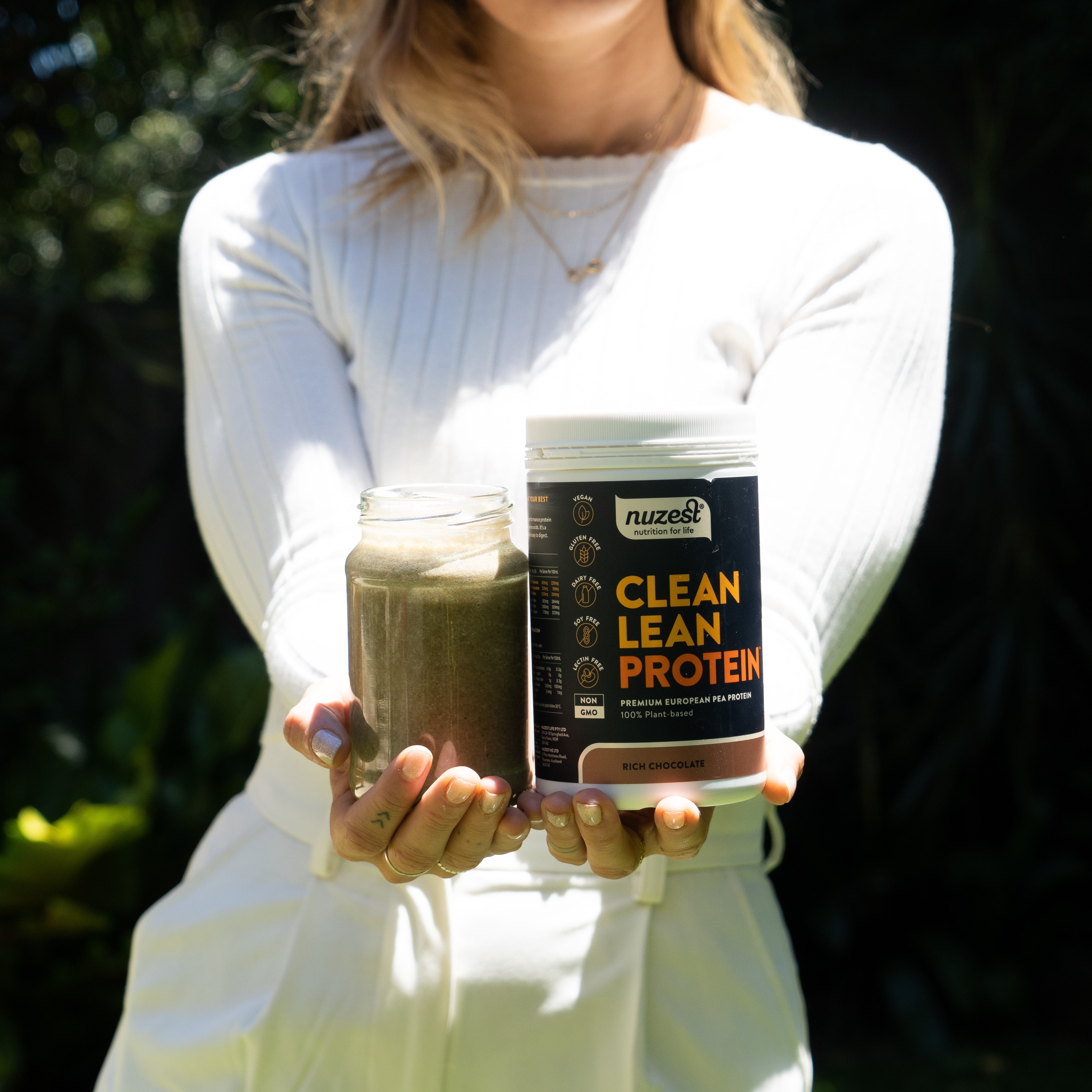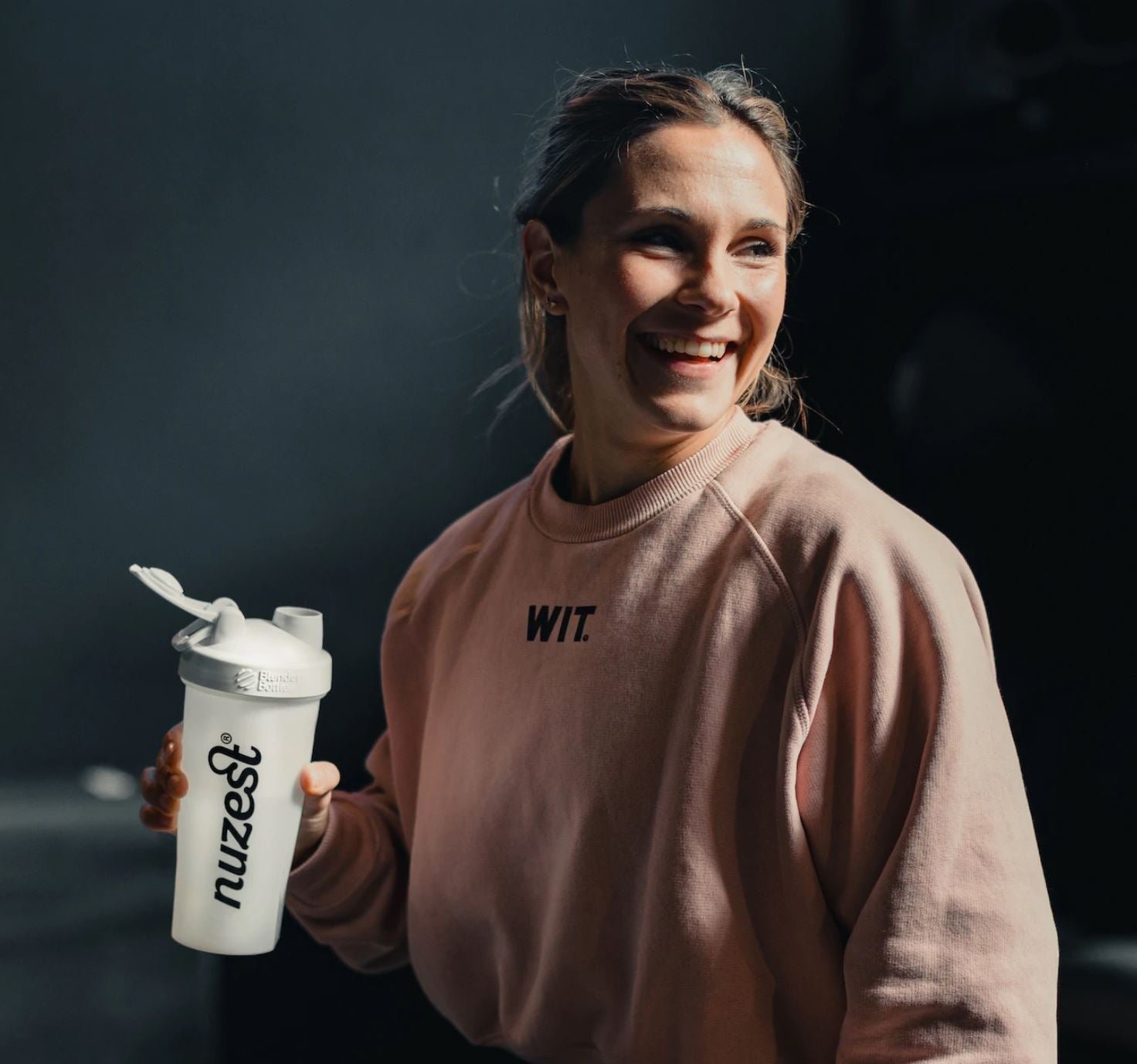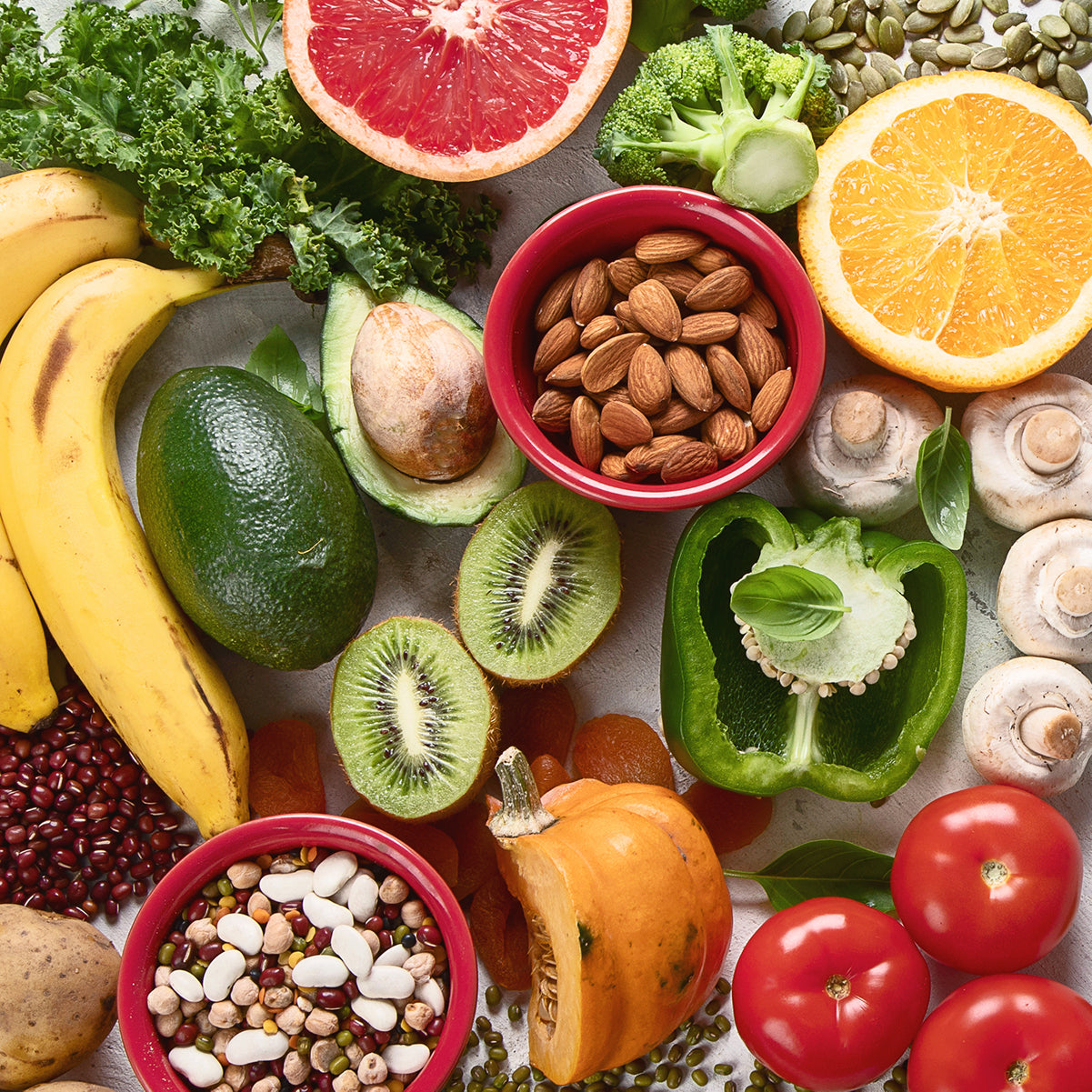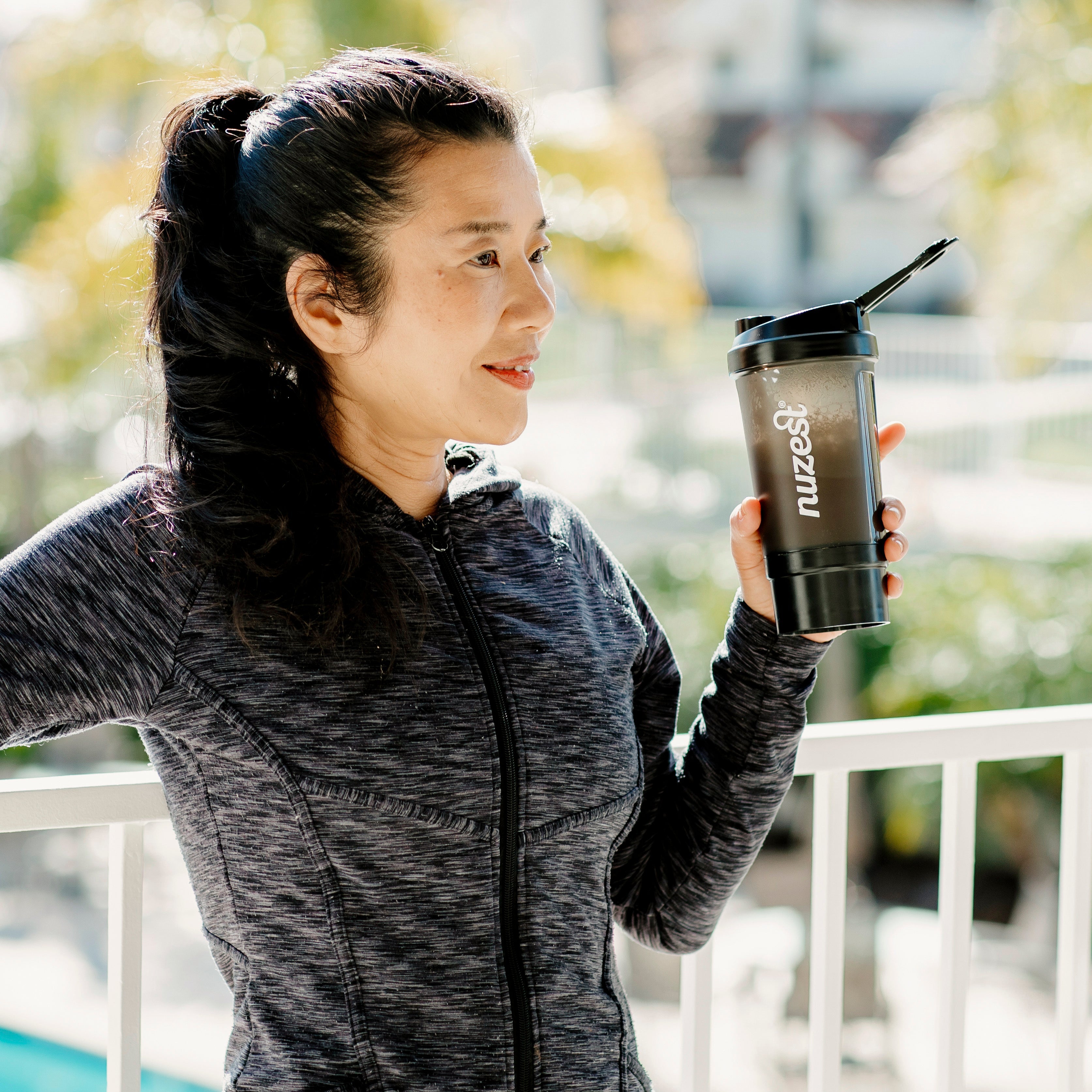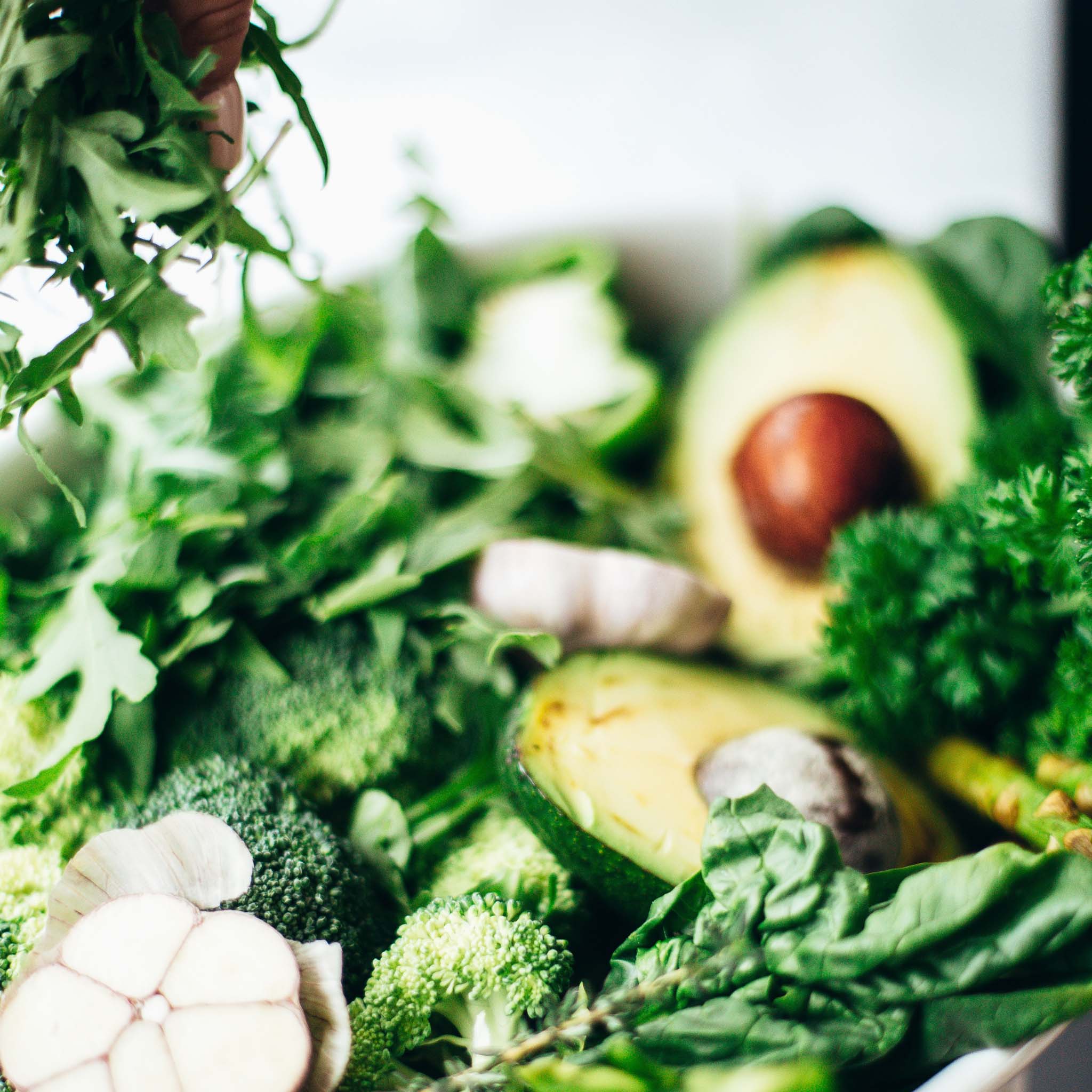Author: Megan Jones (Adv.Dip.NutMed, BHsc.NutMed)
We know cold and flu season is upon us when the air temperature drops, coughs and sneezes start to sprinkle the office, and “there is so much going around” seems to be announced on the daily.
If you have found yourself reaching for the tissues lately, you’re not alone! Adults will experience up to four common colds each year, with a huge one billion colds experienced each year in the US alone.1
Whether or not you get sick, however, is mostly dependent on how well your immune system is functioning.2
Our body needs to maintain certain levels of essential vitamins and minerals to support our immunity.3 So, what is the best way to support a robust natural immune system? The answer is surprisingly simple! Following a nutritionally replete diet can help ensure our body is getting all the nutrients it needs for our immune system to function optimally.4
Sadly, our modern diets alone cannot provide every nutrient that is needed,5 however here at Nuzest we have got you covered!
With immune support in mind, let’s examine the world of colds and flus, and discover how and why a multi-nutrient supplement like Nuzest Good Green Vitality can help protect both yourself and your loved ones against contracting colds and flus in the first place. Just one daily serve, containing more than 75 premium ingredients to support all 11 body systems, can help to prevent and reduce the severity of any cold and flu symptoms that may hit during these cooler months.
Here, we have put together our top tips for fighting off those pesky colds and flus this winter, for relieving their symptoms as well as how to boost your immune system for a speedy recovery if you do get struck down.
Key Takeaways:
- Post-global pandemic we have been left with lower natural immunity, meaning we are currently more susceptible to viruses and bacteria.6
- Prevention and preparation are key when it comes to keeping our health on track this cold and flu season.
- A wide range of micronutrients alongside an appropriate ratio of the macronutrients (protein, carbohydrates, and fats) is required by the body to function optimally.7
Colds, flus and our immunity
Colds come from viral infections and can’t be treated with antibiotics.8 With more than 200 cold viruses known to cause the common cold, it can be hard to pinpoint exactly which strain is impacting us. Rhinovirus appears to be the most common cause, making up around 10 to 40 percent of all colds.9
Prior to the pandemic, not many of us were aware that a cough spreads droplets as far as six metres, and a sneeze as much as eight metres. Another alarming fact is that the droplets can stay suspended in the air for up to 10 minutes!10
Although eight metres is well beyond the social distancing measures, mitigation behaviours that we adopted during the pandemic like school closures, better hygiene practices, social distancing and isolation effectively slowed viral transmission.11
At the same time, however, it meant that our natural immunity unfortunately suffered.
When our natural immunity is low, viruses and bacteria tend to return with a vengeance. Sadly, experts are predicting 2023 is shaping up to be a particularly nasty year for colds and flus.12
The good news is, to be ready to combat the dreaded cold or flu and stop it in its tracks, prevention and preparation can work wonders. As the saying goes, prevention is always better than cure!
Let’s take a deeper dive into 6 lifestyle modifications that can be made to help prevent the dreaded winter colds and flu:
6 wellness habits to help colds and flu
Nutrition
Most of us know that the foundation for a healthy immune system is a good diet that provides sufficient energy, essential fats, protein and a broad range of micronutrients to prevent deficiencies.7 Diets that are high in processed and refined foods, and especially those high in trans-fats and sugar are likely to worsen responses to infections as the result of increased inflammation and a poor immune response.13
When we’re sick, our body needs antioxidants to combat oxidative stress and support healing.14 Including foods rich in antioxidants like berries, dark leafy greens, nuts, seeds, and colourful vegetables in your meals can also help speed up recovery!
Sleep
Sleep is essential for the body during a bout of cold or flu, as lack of sleep can directly affect how our immune system functions.15 When we are asleep is the time when our immune systems are most active and working hard to clear viruses, bacteria and waste products from our bodies. Aiming for around 9 or 10 hours of sleep when we’re sick can help us to heal faster.16,17
Hydration
“Drink plenty of fluids” has been health advice since the dawn of time! This is partly because a lack of water or moisture (which we see in the less humid, drier winter months – particularly when the heaters are on at home) means less production of mucus by our body, and therefore less protection against infections like a cold or the flu virus.18 Hydration is crucial when you're battling a cold or flu as it helps thin mucus and replace the fluids we lose when we’re sick.19 Aim to drink plenty of fluids, including water, herbal teas, clear broths, and soups.
Stress
Stress suppresses the body's immune system making it more difficult for the body to ward off viruses and bacteria.20 It even makes the common cold more miserable and harder to kick by letting inflammation linger, and research has demonstrated an inverse relationship between stress and immunity. Tropical holiday, anyone?!
Exercise
Being and staying active has enormous value for many areas of health, including optimal immune function. Exercising regularly is a powerful way to reduce cold or flu-like symptoms.21 The more your immune cells circulate in your blood through exercise, the more efficient your immune system will be.
Hygiene
Lastly, but by no means least is the importance of hygiene like frequent handwashing, which is one of the best ways to avoid getting sick and stop the spread of illnesses.22
Did you know?
Nutrients that we acquire through whole foods or supplementation do not work in isolation and a deficiency in one area can prevent other nutrients doing their job.23,24 It is for this reason that it’s important to focus on nutrients in combination and in appropriate doses.
6 top nutrients to take if we do get sick
Zinc
Zinc is a mineral known for its role in immune function. When you're under the weather, incorporating zinc-rich foods into your diet can aid in recovery.25 Sources of zinc include lean meats, seafood, legumes, nuts, seeds, and whole grains. However, if you opt for zinc supplements, consult your healthcare provider for appropriate dosage guidance.
Vitamin C
Vitamin C is renowned for its immune-boosting properties.26 Incorporate citrus fruits like oranges, grapefruits, and lemons into your diet. If you're not a fan of citrus, other excellent sources of vitamin C include strawberries, kiwis, bell peppers and broccoli.
Probiotics
Did you know that a healthy gut plays a vital role in supporting your immune system?27 Probiotics, often found in fermented foods like yoghurt, kefir, sauerkraut, and kimchi, help maintain a balanced gut microbiome. Including these probiotic-rich foods in your diet can strengthen your immune defenses and reduce the risk of being struck down with a cold or flu.
Vitamin D
Vitamin D, often referred to as the sunshine vitamin, is essential for optimal immune function.28 During the colder months when sunlight exposure may be limited, consider adding vitamin D-rich foods to your diet, such as fatty fish (salmon, mackerel), fortified dairy products, and egg yolks.
Green Tea
Green tea is loaded with disease-fighting antioxidants and polyphenols (plant chemicals), including epigallocatechin gallate (EGCG). Research has shown EGCG can reduce inflammation and improve immune function.29 Aiming for 1 – 5 cups per day when we’re sick can improve recovery time!30
By adopting these nutritional tips and maintaining a healthy lifestyle with the help of Good Green Vitality to fill any nutritional gaps, we can give our bodies the best chance to stay strong and fight off those pesky cold and flu bugs and stop them in their tracks!
References:
- Heimer KA, Hart AM, Martin LG, Rubio-Wallace S. Examining the evidence for the use of vitamin C in the prophylaxis and treatment of the common cold. Journal of the American Academy of Nurse Practitioners. 2009 May;21(5):295–300.
- National Center for Biotechnology Information. How does the immune system work? [Internet]. Nih.gov. Institute for Quality and Efficiency in Health Care (IQWiG); 2020. Available from: https://www.ncbi.nlm.nih.gov/books/NBK279364/
- Mitra S, Paul S, Roy S, Sutradhar H, Bin Emran T, Nainu F, et al. Exploring the Immune-Boosting Functions of Vitamins and Minerals as Nutritional Food Bioactive Compounds: A Comprehensive Review. Molecules. 2022 Jan 16;27(2):555.
- Childs C, Calder P, Miles E. Diet and Immune Function. Nutrients [Internet]. 2019 Aug 16;11(8):1933. Available from: https://www.ncbi.nlm.nih.gov/pmc/articles/PMC6723551/
- Statovci D, Aguilera M, MacSharry J, Melgar S. The Impact of Western Diet and Nutrients on the Microbiota and Immune Response at Mucosal Interfaces. Frontiers in Immunology [Internet]. 2017 Jul 28;8(838). Available from: https://www.ncbi.nlm.nih.gov/pmc/articles/PMC5532387/
- Cohen RM, Levy C, Rybak A, François Angoulvant, Naim Ouldali, Grimprel E. Immune debt: Recrudescence of disease and confirmation of a contested concept. 2022 Dec 1 [cited 2023 Jun 5];53(2):104638–8. Available from: https://www.ncbi.nlm.nih.gov/pmc/articles/PMC9756601/
- Cena H, Calder PC. Defining a healthy diet: Evidence for the role of contemporary dietary patterns in health and disease. Nutrients [Internet]. 2020 Jan 27;12(2):334. Available from: https://www.ncbi.nlm.nih.gov/pmc/articles/PMC7071223/
- Do antibiotics help fight common colds? [Internet]. Nih.gov. Institute for Quality and Efficiency in Health Care (IQWiG); 2017. Available from: https://www.ncbi.nlm.nih.gov/books/NBK279540/
- Lewis-Rogers N, Seger J, Adler FR. Human Rhinovirus Diversity and Evolution: How Strange the Change from Major to Minor. Journal of Virology [Internet]. 2017 Apr 1;91(7). Available from: https://jvi.asm.org/content/91/7/e01659-16
- Matthews R. How far do coughs and sneezes travel? [Internet]. BBC Science Focus Magazine. BBC Science Focus Magazine; 2019. Available from: https://www.sciencefocus.com/the-human-body/how-far-do-coughs-and-sneezes-travel/
- Walker PGT, Whittaker C, Watson OJ, Baguelin M, Winskill P, Hamlet A, et al. The impact of COVID-19 and strategies for mitigation and suppression in low- and middle-income countries. Science [Internet]. 2020 Jun 12;369(6502). Available from: https://science.sciencemag.org/content/early/2020/06/11/science.abc0035.full?fbclid=IwAR0OJ82dh7tXQuINhZMi9c-NqPDfLJ8LJBEVsYQHsixaFlkuzEZ0xFFG8z0
- Sellers FS. Covid is making flu and other common viruses act in unfamiliar ways. Washington Post [Internet]. 2022 Jun 14 [cited 2023 Jun 5]; Available from: https://www.washingtonpost.com/health/2022/06/13/covid-flu-rsv-viruses/
- Iddir M, Brito A, Dingeo G, Fernandez Del Campo SS, Samouda H, La Frano MR, et al. Strengthening the Immune System and Reducing Inflammation and Oxidative Stress through Diet and Nutrition: Considerations during the COVID-19 Crisis. Nutrients [Internet]. 2020 Jun 1;12(6):1562. Available from: https://www.mdpi.com/2072-6643/12/6/1562/htm
- Harvard School of Public Health. Antioxidants: Beyond the Hype [Internet]. The Nutrition Source. Harvard School of Public Health; 2012. Available from: https://www.hsph.harvard.edu/nutritionsource/antioxidants/
- Besedovsky L, Lange T, Born J. Sleep and immune function. Pflügers Archiv - European Journal of Physiology [Internet]. 2011 Nov 10;463(1):121–37. Available from: https://www.ncbi.nlm.nih.gov/pmc/articles/PMC3256323/
- Feeling Sick? Here’s How Many Hours To Sleep Tonight [Internet]. mindbodygreen. 2019 [cited 2023 Jun 5]. Available from: https://www.mindbodygreen.com/articles/how-much-to-sleep-when-youre-sick
- Kuo TH, Williams JA. Increased Sleep Promotes Survival during a Bacterial Infection inDrosophila. Sleep. 2014 Jun 1;37(6):1077–86.
- Louten J. Virus Transmission and Epidemiology. Essential Human Virology [Internet]. 2016;71–92. Available from: https://www.ncbi.nlm.nih.gov/pmc/articles/PMC7148619/
- The All-Time Best Drinks To Sip On When You’re Sick — And 3 To Avoid [Internet]. mindbodygreen. 2020 [cited 2023 Jun 5]. Available from: https://www.mindbodygreen.com/articles/what-to-drink-when-sick
- Seiler A, Fagundes CP, Christian LM. The Impact of Everyday Stressors on the Immune System and Health. Stress Challenges and Immunity in Space [Internet]. 2019 Nov 28;71–92. Available from: https://link.springer.com/chapter/10.1007/978-3-030-16996-1_6
- Nieman DC, Wentz LM. The compelling link between physical activity and the body’s defense system. Journal of Sport and Health Science [Internet]. 2019 May;8(3):201–17. Available from: https://www.sciencedirect.com/science/article/pii/S2095254618301005
- Xun Y, Shi Q, Yang N, Yang N, Li Y, Si W, et al. Associations of hand washing frequency with the incidence of illness: a systematic review and meta-analysis. Annals of Translational Medicine [Internet]. 2021 Mar 1;9(5). Available from: https://www.ncbi.nlm.nih.gov/pmc/articles/PMC8033386/
- Nair KM, Augustine LF. Food synergies for improving bioavailability of micronutrients from plant foods. Food Chemistry. 2018 Jan;238:180–5.
- Shenkin A. Micronutrients in health and disease. Postgraduate Medical Journal [Internet]. 2006 Sep 1;82(971):559–67. Available from: https://www.ncbi.nlm.nih.gov/pmc/articles/PMC2585731/
- National Institutes of Health. Zinc [Internet]. Nih.gov. National Institutes of Health; 2016. Available from: https://ods.od.nih.gov/factsheets/Zinc-HealthProfessional/
- Carr AC, Maggini S. Vitamin C and immune function. Nutrients. 2017 Nov 3;9(11):1211.
- Ashraf R, Shah NP. Immune System Stimulation by Probiotic Microorganisms. Critical Reviews in Food Science and Nutrition. 2014 Jan;54(7):938–56.
- Harvard School of Public Health. Vitamin D [Internet]. The Nutrition Source. 2019. Available from: https://www.hsph.harvard.edu/nutritionsource/vitamin-d/
- Wang S, Li Z, Ma Y, Liu Y, Lin CC, Li S, et al. Immunomodulatory Effects of Green Tea Polyphenols. Molecules [Internet]. 2021 Jun 20 [cited 2021 Sep 11];26(12). Available from: https://www.ncbi.nlm.nih.gov/pmc/articles/PMC8234133/
- One Immune-Boosting Super-Ingredient Used 3 Ways: Green Tea [Internet]. Healthline. 2021 [cited 2023 Jun 5]. Available from: https://www.healthline.com/health/immune-boosting-green-tea-used-3-ways#:~:text=Immunity%2Dboosting%20benefits
